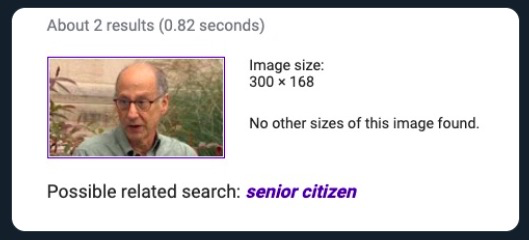November 24, 2019
It’s official
I did an image search on this photo to see whether it’s openly licensed. Google couldn’t find it, but here’s what it told me:
Nailed it.

November 24, 2019
I did an image search on this photo to see whether it’s openly licensed. Google couldn’t find it, but here’s what it told me:

Nailed it.
November 18, 2019
Inc. magazine has named Everyday Chaos as one of its 11 “must read” books for entrepreneurs. “For product makers, industry shakers, and folks who want to be their best selves, these are the titles to read now.”
The article’s author, Leigh Buchanan, does an excellent job encapsulating the book:
Weinberger, for decades one of the most prescient and philosophical thinkers about the internet, here tackles the broader subject of how technology influences the way we understand and function in the world. Moving back and forth between ancient history and 10 minutes from now, Everyday Chaos explains that fixed-future ideas like progress and preparation are insufficient in the face of multiplying layers of complexity. Yet as our decision-making is overtaken by machines, it becomes possible to operate without our own hypotheses about what will work. Weinberger advocates for operating in a state of “unanticipation” in which we leave options open (think minimal viable products, agile development, and black swans). In this way of looking at the world, traditional strategy can be dangerous. Obscurity is your friend.
In “The Efficiency-Destroying Magic of Tidying Up“, Florent Crivello (twitter: @Altimor) has written a clear, convincing, and compact critique of the assumption that efficient organization is tidy, neat, and rectilinear. “[E]fficiency tends to look messy, and good looks tend to be inefficient.”
This is because complex systems — like laws, cities, or corporate processes — are the products of a thousand factors, each pulling in a different direction. And even if each factor is tidy taken separately, things quickly get messy when they all merge together
He applies this to management organization, the tool sets used by collaborators, city planning, science fiction visions of the future, parenting, and pizzas.
Not to mention that in one brief, beautiful essay he unites the themes of two of my books: Everything Is Miscellaneous and my new Everyday Chaos.